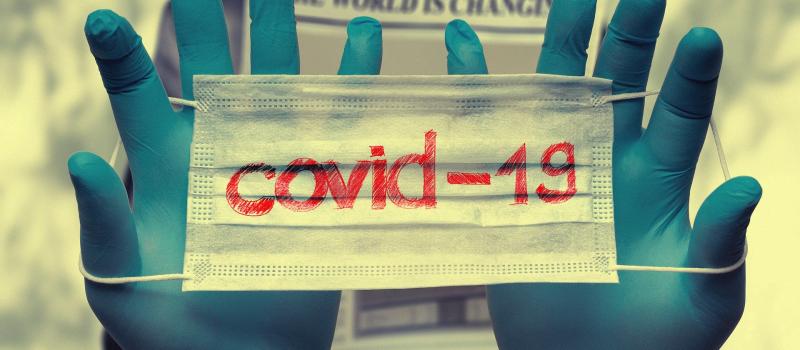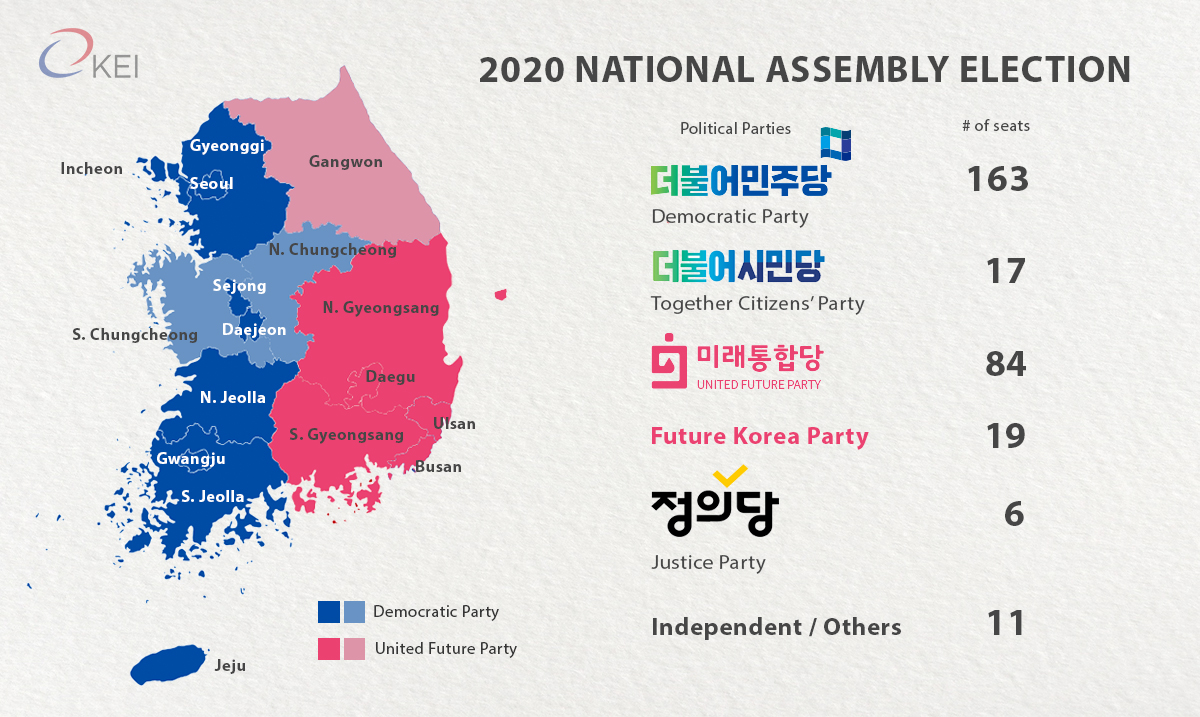“All Eyes on Asia”: The Geopolitical State of Affairs in Northeast Asia Amidst the COVID-19 Pandemic
posted by Eleanor Shiori Hughes on May 13, 2020 - 12:00am

Last month on April 10th, the Korea Society and the Japan Society hosted a virtual talk titled “Geopolitics of Coronavirus: Japan and Korea,” moderated by Dr. Joshua Walker from the Japan Society. The two main speakers, Dr. Sheila Smith, Senior Fellow for Japan Studies at the Council on Foreign Relations; and Dr. Stephen Noerper, Senior Director at The Korea Society, outlined how these two democratic nations in Northeast Asia have tackled the coronavirus pandemic to date, and the regional implications it may pose in the foreseeable future.
Dr. Smith gave a brief overview of how COVID-19 cases first emerged in Japan in January, although frequent human-to-human transmission did not occur until March. This prompted Prime Minister Shinzo Abe to declare a state-of-emergency for six prefectures: Tokyo, Kanagawa, Saitama, Chiba, Osaka, Fukuoka, and Hyogo. Smith pointed out that this allowed the national government to distribute a far greater amount of resources to regions most affected by C0VID-19, but it did not allow prefectural governors to force people to stay in their homes. Moreover, it also could not force businesses to completely close. Abe has since imposed a state-of-emergency for the entire country on April 16th. So far, the Japanese government’s approach has received some harsh criticism, and Smith attributes these negative sentiments to the Diamond Princess incident, the economic relationship between Japan and China, and the bleak outlook for the Japanese domestic economy. With the Tokyo 2020 Olympics now postponed to summer 2021, Abe faces another obstacle to revitalizing Japan’s slumping economy.
Dr. Noerper iterated that since South Korea was one of the first countries to experience a peak in COVID-19, at least 150 nations have reached out to South Korea for scientific expertise and crisis management techniques in combatting this vicious virus. South Korea sent at least $50 million worth of test kits abroad. While Korea may have passed the apex of the number of COVID-19 cases, President Moon Jae-In was not immune to criticism, especially after many in Daegu—which was host to one of the first major outbreaks outside of mainland China—contracted the virus in late-February. As the first country to conduct an election since COVID-19 was declared a pandemic, Noerper also outlined how South Korea prepared to carry out their National Assembly Elections. Before COVID-19, Noerper pointed out that voters were primarily concerned with South Korea’s domestic economic priorities and inter-Korean relations. Since then, this election has primarily been driven by Moon and his party’s handling of the COVID-19. South Korean voters have spoken, and Moon’s Democratic Party coalition (which also includes the Together Citizens Party) won 180 out of 300 seats on April 15th.

2020 National Assembly Election Results: Courtesy of the Korea Economic Institute of America
Turning back to Japan, Smith referenced the great amount of initiatives that local leaders took in response to the 2011 Great East Japan Earthquake, and how this has been manifested once again in Japan’s response to COVID-19. For example, Hokkaido governor Naomichi Suzuki implemented his own stay-at-home order even before the national government enforced one for all of Japan. It was received quite unfavorably because businesses that rely heavily on tourists visiting the Sapporo area for ski-season lost a tremendous amount of revenue. Once again, Smith pointed out that while he did not have the legal authority to close businesses, most acquiesced to his order. And unlike Moon, who has been lauded by the international community for their containment efforts of COVID-19, Abe has more reason to be concerned about his public approval ratings. That being said, now that he is the longest-serving prime minster in Japan and even given some of his previous domestic scandals, Smith notes that Abe has a “remarkably steady approval rating in Japan.”
In the second half of the discussion, both speakers analyzed COVID-19 in relation to the complex geostrategic dynamics of Northeast Asia. The virus exacerbated both Japan and Korea’s pre-existing economic woes, and bilateral relations between the two have been anything but rosy for both economic and historical reasons. Despite that, Noerper illustrated that COVID-19 opens up both the necessity and the opportunity for Japan and Korea to repair their economic relations, now that supply-chains are shifting away from China. Smith echoed Noerper’s sentiments that pandemics cannot be unilaterally fixed and require close coordination with other nations and institutions. In the case of South Korea and Japan, she too hopes that cooperation can be prioritized over competition through this shared experience of subduing COVID-19. She even incorporated China into this vision, but in laying out the example about the Japanese government providing 220 billion yen as an incentive for Japanese companies to move their operations back to Japan from China, she emphasized that this will be no easy endeavor.
As Smith did so earlier in the talk, Noerper also cautioned that we must not let the erosion of US-China bilateral relations dictate the current geopolitical state of affairs in Northeast Asia. Certainly, there is tension, but as emphasized by Korea’s response, coordination and long-term cooperation can only be made possible with the stringent use of transparency and a consensus among citizens to abide by guidelines put forth by their government.
In addition, with Korea and Japan experiencing some of the first COVID-19 cases outside China, Smith said that both countries can encourage medical professionals from all around the world to share best practices so that the international community can be better prepared to combat a future global health crisis.
Now that cases have dropped significantly in China and South Korea, much of the world is closely observing the preparations that they have made to gradually reopen this month. On May 6th, Disney announced that the Shanghai Disneyland will reopen on May 11th—the first of any Disney theme-park to do so. China and South Korea have agreed to allow South Koreans to resume essential business travels into China starting on May 1st. Dasl Yoon from the Wall Street Journal recently published a comprehensive piece on how South Korea has already started opening businesses and resuming church services. As predicted, physical distancing, routine temperature checks, and limited seating capacity at public establishments remain ubiquitous—at least for now. For the time being, Japan still has some ways to go in easing restrictions, as Abe just extended the state-of-emergency mandate to the end of May amid rising concerns that medical capacities might get overwhelmed, especially in the more densely-populated areas like Tokyo.
And with these reopenings, all eyes are on Asia.

